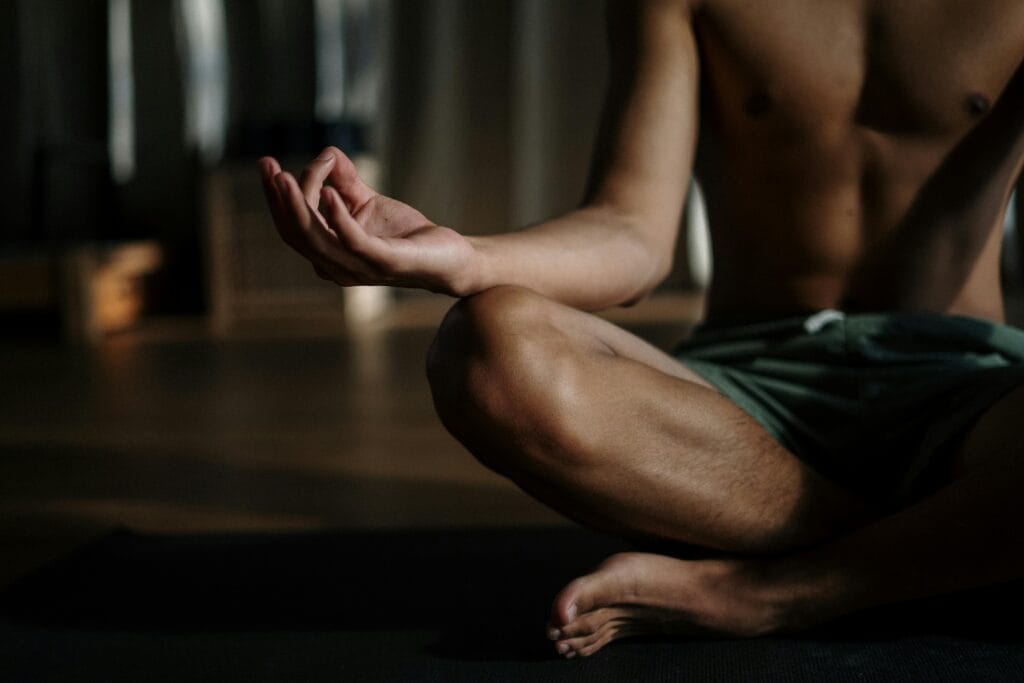Why Deep Breathing is the Key to Better Mental Health?
In the spiritual or philosophical realm, our body comprises 5 Elements of Life, which are also known as Pancha Mahabhutas, i.e., Earth, Water, Fire, Air, and Space (Ether).
So breathing is a vital part of human existence. But do we know mindful breathing can help us find balance in a life full of stress and anxiety?
Deep Breathing and mental health go hand-in-hand, offering a natural and science-backed way to calm our minds, reduce anxiety, and improve overall well-being.
In this blog, we’ll explore 7 powerful deep breathing techniques that can improve our mental health, backed by science, and how we can make them part of our daily routine.

How Deep Breathing Improves Mental Health?
“Breath is the link between mind and body.” – Thich Nhat Hanh
When we do deep breathing exercises, we activate the parasympathetic nervous system in our body— which is the body’s natural “Rest and Digest” mode.
This process reduces the production of Cortisol (the stress hormone), which will slow down our heart rate, and we can find peace.
✅ Science-Backed Benefits:
- Reduces Anxiety and Stress: Deep breathing increases the oxygen supply to the brain, which will reduce anxiety and calm our nervous system.
- Enhances Focus and Clarity: Controlled breathing will improve concentration by balancing oxygen and carbon dioxide levels in our body.
- Promotes Emotional Balance: Breathwork helps regulate emotions by activating the vagus nerve, which will relax our brain.
🧘♀️ The Science Behind Deep Breathing and Mental Health
Scientific research supports the positive impact of deep breathing on mental health.
Studies show that Diaphragmatic Breathing will enhance heart rate variability (HRV), which will improve emotional regulation which is good for our Mental Health.
✅ How It Works:
Deep Breathing will activate the parasympathetic nervous system which will calm our brain.
Mindful Breathing will reduce cortisol and adrenaline production, which will give us peace.
According to a study published in Frontiers in Psychology, regular practice of deep breathing techniques significantly lowers stress and anxiety levels and help you to achieve better Mental Health.
🌀 7 Deep Breathing Techniques to Improve Mental Health
1. 🟢 Box Breathing for Emotional Control
Steps to Do It:
First, inhale for 4 seconds
Then, hold your breath for 4 seconds
Then exhale for 4 seconds
Lastly, pause for 4 seconds
✅ Best For: Managing anxiety and increasing focus
2. 🔵 4-7-8 Breathing to Calm the Nervous System
Steps to Do It:
First, inhale for 4 seconds
Then hold for 7 seconds
At last, exhale slowly for 8 seconds
✅ Best For: Inducing calm and reducing anxiety
3. 🟡 Diaphragmatic Breathing for Mental Clarity
Steps to Do It:
First, breathe deeply into your belly
When you feel your diaphragm expand and contract it.
✅ Best For: Improving focus and calming the mind
4. 🟠 Alternate Nostril Breathing for Balance
Steps to Do It:
First, close one nostril and inhale
Then switch and exhale through the other nostril
✅ Best For: Balancing the mind and body
5. 🔴 Guided Breathing for Deep Relaxation
Steps to Do It:
For this we have to follow a guided audio or video session
✅ Best For: Deep stress relief and mindfulness
6. 🟣 Resonance Breathing for Emotional Regulation
Steps to Do It:
In this method, we have to breathe at a rate of 5-6 breaths per minute which will balance our Happy Hormones.
✅ Best For: Regulating emotions and lowering blood pressure
7. 🟤 Sitali (Cooling Breath) for Reducing Anxiety
Steps to Do It:
This method is a bit unusual but effective.
First, we have to inhale through a rolled tongue
Then we have to exhale through the nose
✅ Best For: Calming the mind during heat and stress

🌞 How to Incorporate Deep Breathing into Your Daily Life?
“Breathe deeply and let go. It’s the simplest path to inner peace.” – Unknown
Mental Health issues are a serious concern nowadays, and breathing is free. To experience the full benefits of deep breathing and mental health, we have to incorporate the above 7 techniques into our daily life style & we have to practice consistently.
💡 Tips for Success:
We can schedule 5-10 minutes of mindful breathing each morning.
During stressful moments, we should practice these breathing techniques.
We can pair deep breathing with meditation or yoga for a holistic approach.
📣 Final Thoughts: Unlock Inner Peace with Deep Breathing
“Inhale peace, exhale stress. Your breath is your greatest tool for inner balance.” – Unknown
Incorporating Deep Breathing techniques into our daily lives can be a game-changer for our mental health and emotional well-being.
Backed by science and practised for centuries, these breathing techniques empower us to calm our minds, reduce stress, and build emotional resilience.
Breathing, also known as pranayama, is essential to yoga because it unites the Mind, Body, and Soul. Deep, mindful breathing is crucial for maintaining our mental health. To achieve the utmost peace and comfort, we should put these techniques into practice every day of our lives.
Let me know which breathing method helped you more to find peace?

